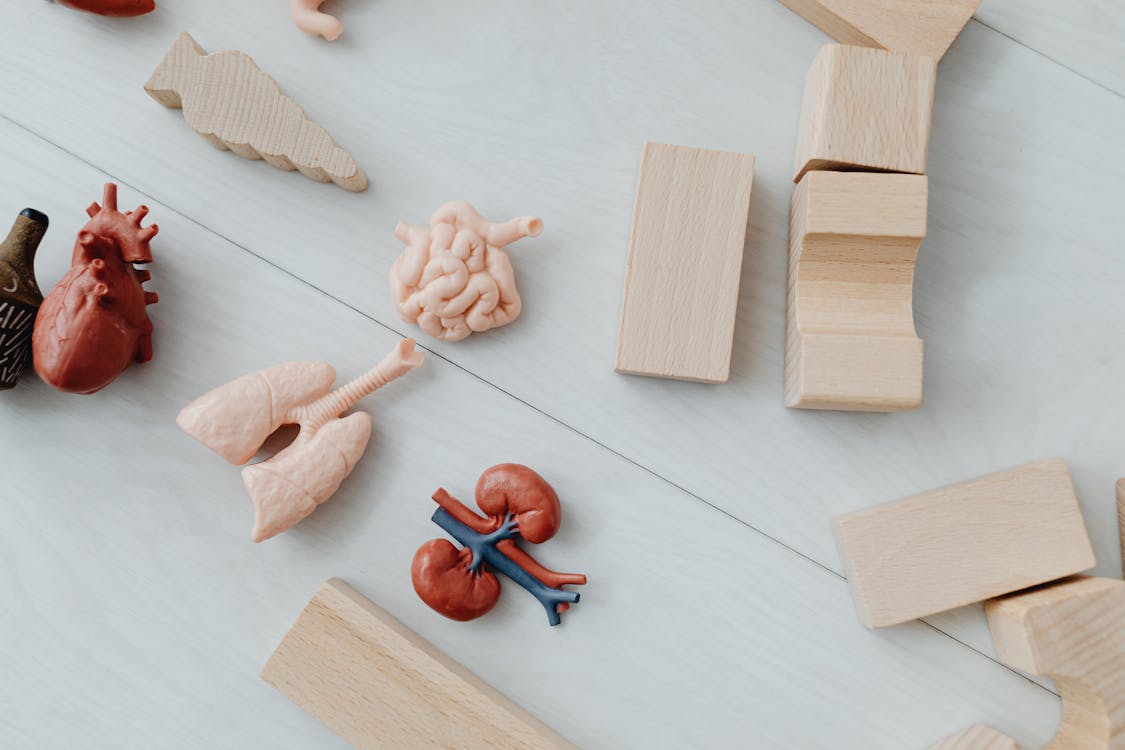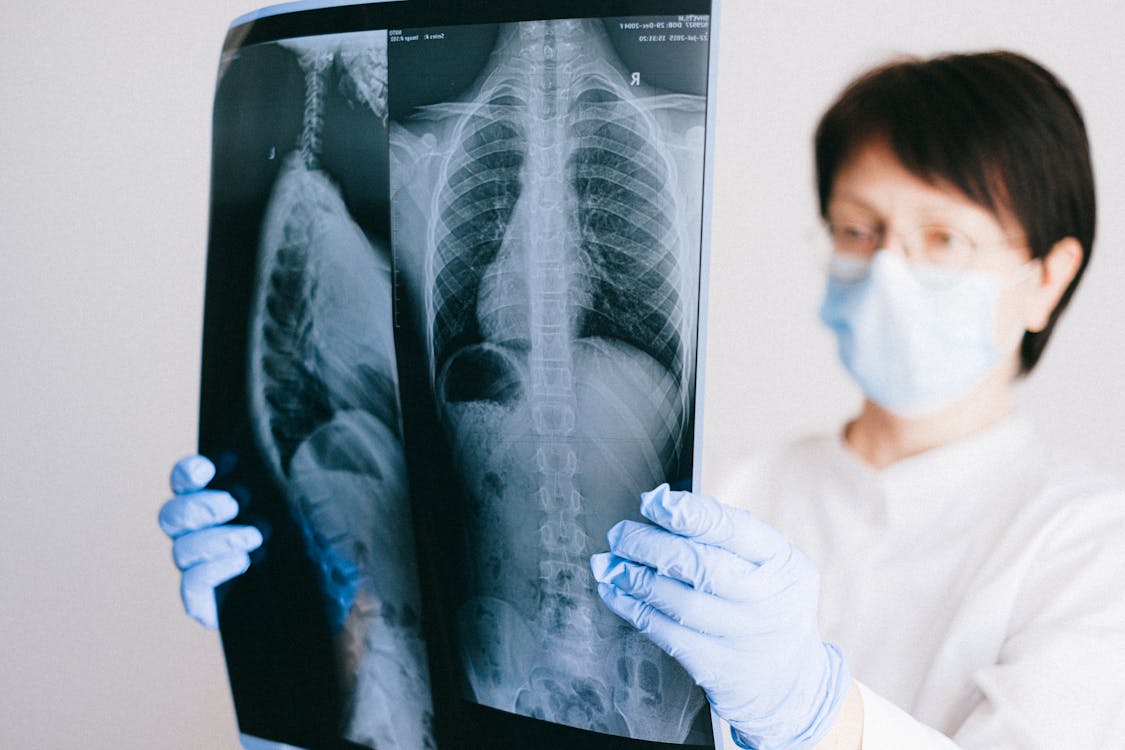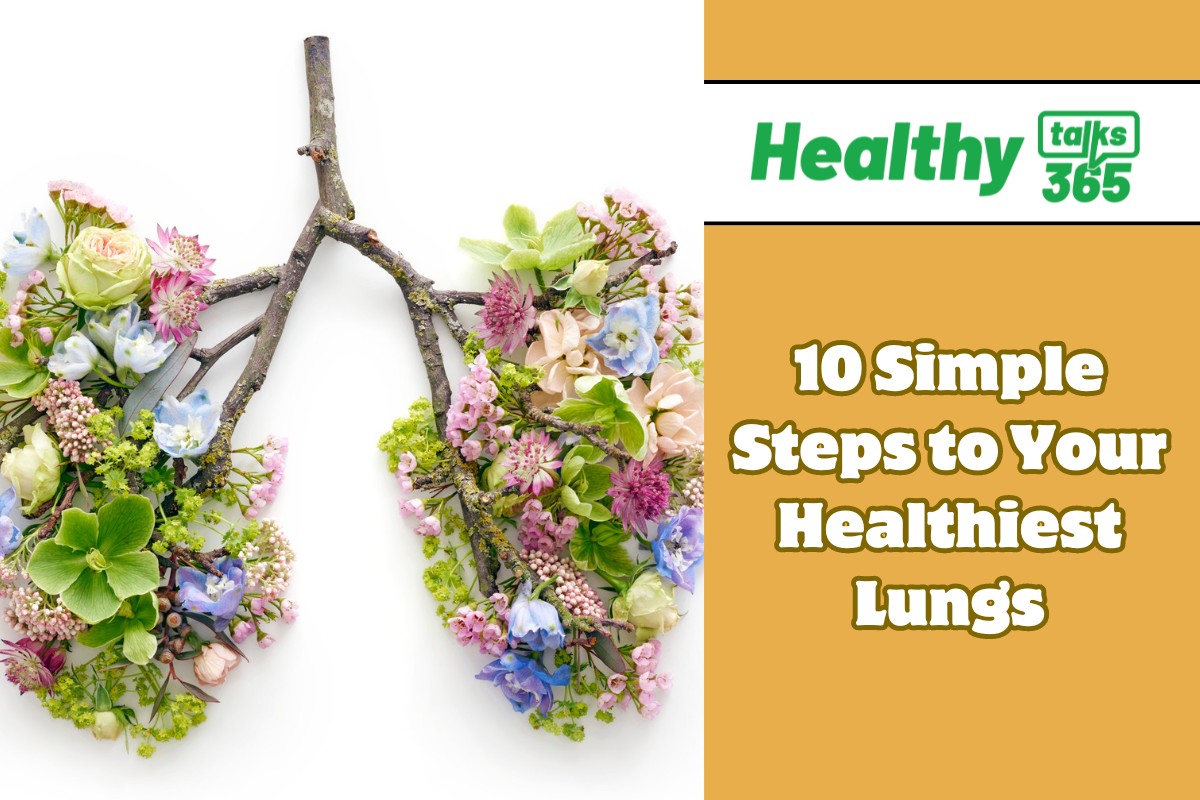10 Simple Steps to Your Healthiest Lungs
1. Avoid smoking to get healthy lungs
One of the most effective ways to maintain healthy lungs is by avoiding smoking and exposure to secondhand smoke. Smoking damages the airways and the tiny air sacs (alveoli) in the lungs, leading to serious respiratory conditions like emphysema and lung cancer. The chemicals in tobacco smoke irritate and inflame the lungs, making it harder for them to function properly over time. Quitting smoking is crucial for improving lung health and reducing the risk of developing chronic lung diseases.
When you quit smoking, your lungs start to repair themselves. The coughing and shortness of breath that smokers often experience can improve, and lung function can increase. Avoiding secondhand smoke is equally important, as it contains many of the same harmful chemicals as direct smoking and can still cause damage to lung tissue and increase the risk of respiratory problems.

2. Stay active to improve lung function
Regular physical activity plays a crucial role in improving lung function and overall respiratory health. When you exercise, your breathing rate increases, allowing your lungs to take in more oxygen and expel carbon dioxide more efficiently. Activities like walking, jogging, swimming, and cycling strengthen the muscles involved in breathing and enhance cardiovascular fitness.
Aiming for at least 150 minutes of moderate exercise per week can significantly benefit your lungs. Exercise helps to maintain healthy lung tissue and prevents the decline in lung function that can occur with age or inactivity. It also improves circulation, which enhances the delivery of oxygen to tissues throughout the body, including the lungs.
Read Also:
Best Exercises And Yoga Poses For A Healthy Lifestyle
3. Practice good posture to maintain good lung health
Maintaining good posture is not only important for spinal health but also for optimal lung function. When you slouch or hunch over, it compresses the space in your chest cavity where your lungs reside. This compression restricts the ability of your lungs to fully expand when you breathe in, limiting the amount of oxygen that can enter your body. Over time, poor posture can lead to shallow breathing patterns and decreased lung capacity.
On the other hand, sitting and standing up straight allows your lungs to expand fully and efficiently. This allows for deeper breathing, which helps to oxygenate your blood more effectively and improve overall respiratory function. Good posture also reduces the strain on the muscles of the neck and shoulders, making it easier for the diaphragm—a key muscle involved in breathing—to move freely.
4. Breathe deeply to improve lung function
Deep breathing exercises are beneficial for enhancing lung capacity and efficiency. When you engage in deep breathing, you allow more oxygen to enter your lungs and carbon dioxide to be expelled. This is in contrast to shallow breathing, which limits the amount of air that reaches the deeper parts of your lungs, potentially leading to reduced oxygen intake and less effective removal of waste gases.
Techniques such as diaphragmatic breathing and pursed-lip breathing can help improve your lung function. Diaphragmatic breathing involves breathing deeply into your diaphragm, which is a large muscle located between your chest and abdomen. This technique helps to fully expand your lungs and encourages efficient gas exchange. Pursed-lip breathing involves inhaling slowly through your nose and exhaling gently through pursed lips, which helps to keep airways open longer and reduces the work of breathing.
5. Stay hydrated to keep your lungs healthy
Hydration plays a crucial role in maintaining healthy lungs. Drinking an adequate amount of water helps to keep the mucous membranes in your airways and lungs moist. This thin layer of mucus acts as a protective barrier, trapping irritants like dust and bacteria before they can reach deeper into your respiratory system. When you are well-hydrated, this mucous layer remains effective in its role, making it easier for your lungs to function optimally.
Aim to drink at least eight 8-ounce glasses of water per day to ensure proper hydration. Adjust your intake based on factors such as physical activity level, climate, and overall health. In addition to water, consuming other hydrating fluids such as herbal teas or diluted fruit juices can also contribute to your daily fluid intake.
Staying hydrated not only supports lung health but also helps to thin out any thicker mucus that may accumulate in your airways due to respiratory conditions or environmental factors. This can make it easier to cough up mucus and clear your lungs, reducing the risk of infections and promoting clearer breathing.

6. Avoid air pollution to protect your lungs
Minimizing exposure to air pollution is essential for maintaining lung health and reducing the risk of respiratory problems. Air pollutants such as dust, chemicals, vehicle emissions, and smog can irritate the respiratory system and lead to inflammation in the airways and lungs. Prolonged exposure to these pollutants can contribute to the development or worsening of conditions like asthma, chronic bronchitis, and even lung cancer.
To protect your lungs from air pollution, take proactive steps such as monitoring air quality reports and limiting outdoor activities on days when pollution levels are high. When indoors, use air purifiers with HEPA filters to help remove harmful particles from the air. Avoiding areas with heavy traffic or industrial emissions can also reduce your exposure to pollutants.
Read Also:
How To Reduce Your Weight Under 45 Days: Tips And Solutions
7. Eat a healthy diet to support lung health
Maintaining a nutritious diet is important for supporting lung health and optimizing respiratory function. A balanced diet rich in fruits, vegetables, whole grains, and lean proteins provides essential nutrients that contribute to lung health. Antioxidant-rich foods such as berries, leafy greens, and nuts help to reduce inflammation in the lungs and protect against oxidative stress, which can damage lung tissue.
Including foods high in vitamins C and E, such as citrus fruits, kiwi, almonds, and sunflower seeds, can further enhance lung health by supporting immune function and reducing the risk of respiratory infections. Omega-3 fatty acids found in fatty fish like salmon and trout, as well as flaxseed and walnuts, have anti-inflammatory properties that may benefit lung function and reduce the severity of conditions like asthma.
Eating a variety of nutrient-dense foods ensures that your lungs receive the vitamins, minerals, and antioxidants they need to function optimally and repair any damage. Avoiding processed foods and excessive intake of saturated fats and sugars supports overall health and may reduce the risk of respiratory conditions.
8. Maintain a healthy weight to avoid straining your lungs
Maintaining a healthy weight is crucial for supporting optimal lung function and overall respiratory health. When you carry excess weight, particularly around the abdomen, it can put pressure on the diaphragm and restrict the expansion of the lungs. This restriction makes it harder for the lungs to fully inflate and deflate with each breath, leading to shallow breathing and reduced oxygen exchange.
Regular exercise plays a key role in managing weight and supporting lung health. Physical activity helps burn calories, reduce fat stores, and strengthen the muscles involved in breathing. Activities such as brisk walking, jogging, swimming, and cycling not only aid in weight management but also improve cardiovascular fitness, which enhances the efficiency of oxygen uptake by the lungs.

9. Practice good hygiene to avoid respiratory infections
Practicing good hygiene is fundamental in safeguarding against respiratory infections, which can pose risks to lung health. Regularly washing your hands with soap and water is one of the most effective ways to prevent the spread of germs that cause respiratory illnesses. Hands come into contact with numerous surfaces throughout the day where germs can linger, and proper handwashing removes these pathogens, reducing the likelihood of infection transmission.
It’s especially important to wash your hands before eating or preparing food, after using the restroom, and after coughing, sneezing, or blowing your nose. This simple practice helps prevent the introduction of germs into your body, including those that can affect the respiratory system.
Read Also:
Tips for a Good Night’s Sleep: Creating a Relaxing Bedtime Routine
10. Get regular check ups to improve your overall lung health
Regular medical check-ups play a crucial role in enhancing and maintaining lung health. These routine appointments allow healthcare providers to assess your respiratory function and detect any potential issues early on. During check-ups, your doctor may perform lung function tests, such as spirometry, to evaluate how well your lungs are working. They may also listen to your lungs with a stethoscope to detect any abnormal sounds that could indicate problems.
Early detection of respiratory conditions, such as asthma, chronic obstructive pulmonary disease (COPD), or lung cancer, can lead to earlier intervention and better outcomes. Routine screenings are particularly important if you have a history of smoking, exposure to environmental pollutants, or a family history of lung disease. Your healthcare provider can provide personalized recommendations based on your individual risk factors and medical history.




